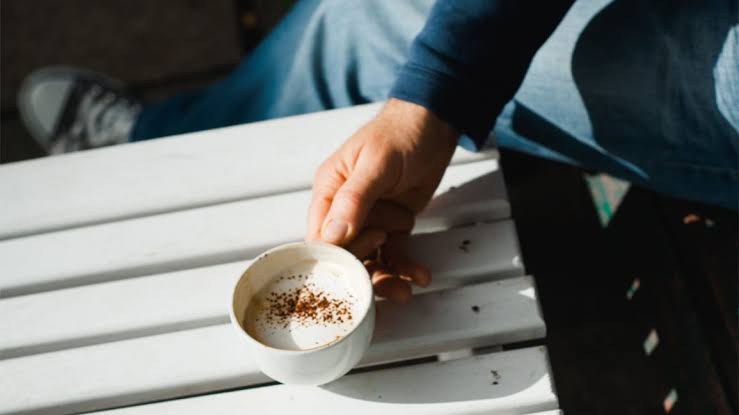Coffee is not only good and healthy, it also helps raise our pain threshold by helping us to bear it better. Coffee not only protects from pain, but also helps to increase the tolerance to it.
This is revealed by a British study according to which drinking this drink regularly (and others that contain caffeine) helps the body to cope and tolerate pain better. The research was carried out by Burel Goodin, a scholar from the University of Alabama, in Birmingham, England. The experiment, published in the famous Psychopharmacology journal , highlights a new extraordinary power of coffee.
In the course of his studies, Burel Goodin analyzed 62 volunteers aged between 19 and 77 who consumed an average of 170 milligrams of coffee per day (i.e. about two cups). Research participants underwent a test to assess their individual pain threshold, through the pressure of increasing intensity and heat exerted on the forearm. At the end of the experiment, the individuals had to declare when the pain was unbearable and when it was tolerable.
The result? The pain tolerance threshold increases in proportion to the caffeine that is consumed. This is just another discovery that shows the amazing benefits of coffee. If taken in the right quantities and without overdoing it, it can prove to be an excellent ally for well-being. For example, coffee is rich in antioxidants, so it is an absolutely excellent ally, like fruit and vegetables, to counteract the action of free radicals and premature aging.
Not only that: it is good for the liver, counteracts the symptoms of Parkinson’s disease, and is an excellent anti-stress reliever, so much so that only the scent of coffee is enough to make us return to a good mood. Finally, it has been proven to be a perfect anti-tumor and also an excellent remedy to reduce the risk of Alzheimer’s.
The fact that it also helps you cope with pain better is just another great reason to drink it every day. But be careful, because it is necessary not to overdo it and always consume the dose recommended by experts. The maximum amount is four cups, thus, avoiding the unpleasant side effects of caffeine abuse.
Coffee, a cure-all against headaches
The relationship between coffee and headache is very complex: too many cups can facilitate attacks, but abstinence can also do so in the so-called ” weekend headache “, of which the reduction of the drink (drunk more frequently during working days to take a break or overcome sleepiness), perhaps added to a few hours of sleep and a few too many drinks.
Caffeine withdrawal headache was also proven by a research of the College of Medicine at the University of Vermont in Burlington (USA), with the paradoxical consequence that those who suffer from it try to cure it by drinking coffee, thus increasing addiction and “rebound” effect.
An ambivalent relationship, in short, is also explained by the fact that there is not just one headache, but many types of pain (tension headache, cluster headache, migraine, throbbing, and other symptoms such as nausea, dizziness, glare and so on) on which coffee can have different effects.
Coffee: friend or foe of headaches?
In fact, many people who do not suffer from severe headaches, but only occasionally, use a cup of strong unsweetened coffee to relieve it, without the need for anything else: to determine the beneficial effect is the mild vasoconstrictive action on the blood circulation. which narrows the arteries of the skull which in some types of headaches, such as migraine, dilate excessively. To increase its effectiveness, it may be useful to lie down for at least half an hour in a dark and quiet room, in order to completely relax.
On other subjects, however, caffeine could also trigger an opposite effect, as it seems to have the ability to increase the concentration of free fatty acids in the plasma; their conversion into other substances, such as prostaglandins, could trigger the vasodilation that is a prelude to the migraine crisis.
In short, those suffering from headaches should, first of all, take into account their personal response to coffee and decide whether to use it as non-pharmacological support or avoid it in a preventive manner, perhaps trying to replace it with decaffeinated coffee.
The pain-relieving effect of caffeine
How do we put it then with the fact that pharmacology, for some time, has exploited the adjuvant effect of caffeine as a pain reliever?
Gioacchino Tedeschi, director of the Department of Neurological Sciences of the University of Campania “Luigi Vanvitelli” explains: “There are no experimental studies that support the stories of patients who wake up with a headache and argue that the only thing that lets them pass it is a cup of espresso as soon as you get out of bed”. There is instead evidence that caffeine works in the acute migraine attack, characterized by intense painful symptoms, one-sided and throbbing.
Migraine is due to a vasodilation of the extracerebral intracranial vessels; the vasoconstrictor effect of caffeine can therefore have a positive value. Many medicines combine the power of a synthetic analgesic and anti-inflammatory molecule with that of caffeine, in different proportions. The help also comes from the fact that caffeine facilitates the absorption of drugs, because it passes into the blood quickly, between 40 and 90 minutes. And this explains why many people like coffee so much, not only for the satisfaction of the taste palette it offers, but for the effects on attention and concentration and, therefore, also on pain.
But watch out for chronic and excessive consumption: “Caffeine is found in many drinks, from tea to energy drinks, to cola-based drinks” – warns Gioacchino Tedeschi – and the excessive consumption of this substance with a stimulating effect on the central nervous system can trigger migraine attacks or turn episodic attacks into chronic ones. Let’s also add the fact that coffee can disturb sleep, and this obviously makes migraines worse. In general, 300-400 mg of daily caffeine is a reasonable amount for everyone, considering that the average content of a cup is for espresso and mocha of 60-120 mg (35-50 ml) and for American coffee. (100 ml) of 95-125 mg.
What the studies say
A good example is that researchers at the Mayo Clinic in Rochester, USA, have shown that if patients are given coffee before surgery, a significant reduction in postoperative headaches is achieved.
Coffee also seems effective on nocturnal hypnic headache, which occurs suddenly especially in elderly people: a cup of coffee before going to bed can improve the effectiveness of drugs and reduce attacks, as long as it does not interfere with night rest.


